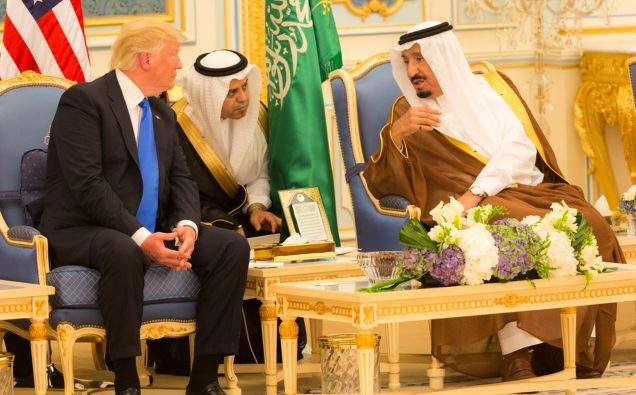
Saudi Arabia is sending a senior official to Washington on a mission to contain US-Iran crisis, which have escalated precariously following killing of an Iranian general and invasion of the U.S. embassy compound in Iraq.
Analysts say the Riyadh’s decision has likely been prompted by fears of widespread instability in the region and Iranian retaliation against regional rivals including the oil-rich Kingdom.
A Bloomberg report, citing Asharq Al-Awsat newspaper, reports that Crown Prince Mohammed bin Salman is dispatching his younger brother, Deputy Defense Minister Khalid bin Salman, to Washington and London in the next few days to ratchet down the tensions.
U.S.-Iran tensions took a dangerous turn when an American air strike killed Iranian commander general Qassem Soleimani at the Baghdad airport in reaction to an Iranian-backed mob attack on the U.S. embassy in the Iraqi capital.
President Trump, who authorized the strike against the Iranian commander, has warned Tehran against any retaliation, saying the U.S. will strike 52 Iranian targets if the Gulf country chose to do so.
Explaining the motivation behind Saudi move to defuse the tensions, Bloomberg quoted a United Arab Emirate expert.
“The message from the Gulf to the U.S. is clear: They are telling Trump, ‘Please spare us the pain of going through another war that would be destructive to the region,’”Abdulkhaleq Abdulla, a political science, said.
“We will be the first to pay the price for any military showdown, so it’s in our best interest not to see things get out of hand,” the academic said interpreting the Saudi thinking.
Riyadh’s concerns over destabilization of the region heightened last year when the Yemen’s Iran-backed Houthis hit a major oil refinery with a missile, sounding alarm bells across the region and the world oil market. Saudi Arabia and Iran have been locked in a fierce competition for geopolitical primacy in the Middle East.
Regional countries are deeply worried that a war between the United States and Iran would incur Tehran’s retribution in the form of militant attacks and could throw the region into an unending chaos and conflict.
Qatar moved to stem further U.S.-Iran escalation as it sent foreign minister, Mohammed bin Abdulrahman Al Thani to Tehran, where he met with Iranian President Hassan Rouhani to avoid further destabilization of the region.
Meanwhile, Pakistan, which borders Iran and has a close strategic partnership with Riyadh, has opposed any actions that might lead to another conflict in the region.
















